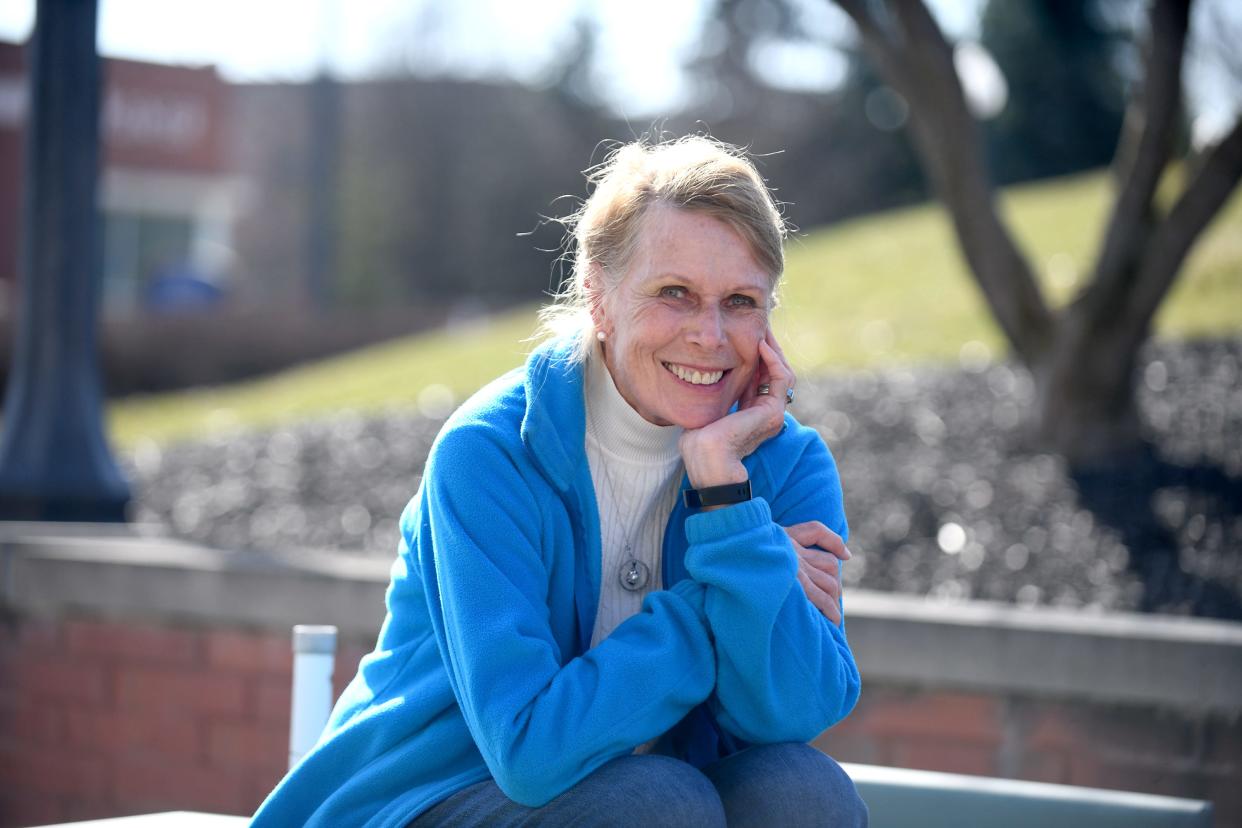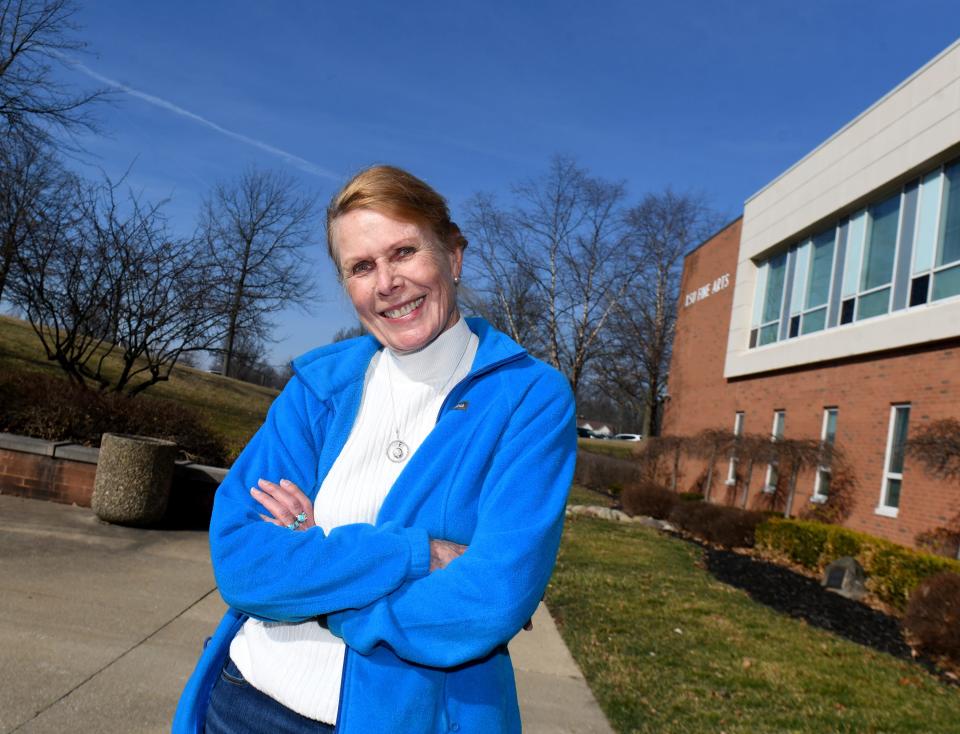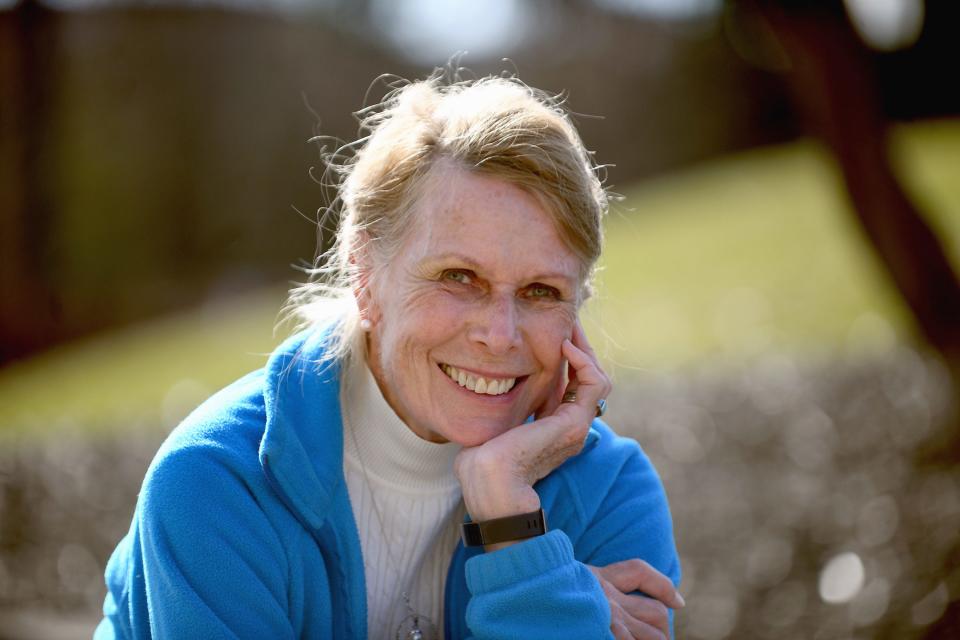Meet Alicia Pieper, an assistant professor at Kent State University at Stark

Kent State University at Stark assistant professor Alicia Pieper teaches in the Human Development and Family Science department. She taught for several years in the Canton Local School District and then started teaching at Kent State University in the 1969-70 school year.
“My first year at Kent included the May 4th shooting in 1970, which made an interesting introduction to university teaching," she said. "In the 1960s there were not a lot of career choices for women. You could become either a teacher or a nurse. Fortunately, teaching was a wonderful career choice for me.
"There is nothing more rewarding than going into a restaurant or an event and having someone tell me that they enjoyed my class, learned a lot from me or sometimes indicate that I changed their life.”
Pieper earned bachelor's and master's degrees, respectively, at Heidelberg College and Kent State University.
She and her husband, John, live in Plain Township. Her husband is a retired educator in Canton City Schools. They have two children, Johnny Pieper who lives locally and works for Farmers Insurance, and Dr. Cassandra Pieper Coakley, who owns a dental practice in Montpelier, Vermont.
She also has six grandchildren. Johnny’s children are Cole and Luke and Cassie has four children, Jack, Melissa, Dylan and Riley. The family dog is Rudy.

5 questions with Jonathan Stump: He's passionate about giving back to Stark County community
What do you feel a college education adds to a person’s life and why is it important?
One of the advantages I see is personal growth. We all experience the ideas of our own family and the community around us.
College opens our minds to the world around us. We become familiar with classmates (many from different backgrounds, experiences, ages and interests). Your education includes college professors who are experts in many different fields, exposing you to subject matter, information and outlooks that you may never have thought about.
Colleges require all students to take “core courses” that provide students with a cross-section of knowledge seen as valuable for success in their life. After this exposure, hopefully, students find an area or areas that they find interesting, maybe even exciting.
Human Development and Family Science (HDFS) focuses on families and the people in those families. The stages of a person’s life from birth to aging/death. We study different family formations (mom, dad and the kids, same sex families, single parents, grandparents raising grandchildren, blended families, divorce families, etc.).
Society is changing and as a result families are changing. HDFS prepares students to work in the “helping professions” where our students work in the areas of human services, foster care programs, adult day care, counseling, child development, hospital family support professionals, programs affecting children and families and many more.
Why did you select to teach in the Human Development and Family Science Department?
The first dean at Kent State Stark was Jack Morehart, and his vision was to make a two-year university education available to Stark residents.
Morehart had a technology background and thought a home economics program would be an asset to the community. The department we created had a sewing lab, textile lab, a food kitchen and dining space. I was the HDFS program and teaching all the first two-year courses.
But as time changed, so did the curriculum of the department. Presently, I teach interpersonal family studies which is part of the core courses required by Kent State students, Introduction to HDFS (an introductory course for HDFS majors), Early Adolescence, Gerontology (a core course), Management of Family Resources, and Changing Roles of Men and Women.
What did you dream of doing as a professional when you were in school?
I grew up in North Canton, and as a kid I don’t have many memories about what I dreamed of doing when I grew up.
I do remember taking the Kuder test in middle school, the results were supposed to tell us what professions or fields we should pursue when we grew up. The test indicated that I should be a forest ranger. The only thing about my life related to being a forest ranger is that I do like being outside.
When I started high school, our homerooms were assigned by the first letter of our last name. My last name had me report to the home economics room. I was in that same room with the same people for four years. The home economics room became “home.”
Back then, there were not many choices open to women. Basically, you could be a teacher or a nurse. The dean of women was my adviser and a home economist. She asked me what I wanted to major in. I told her I had no idea. She said, “How about home economics” and I said, “Sure”. My future was set.
One thing I would like to add is that this was 1962. I had a job at Heidelberg working for a biophysicist. Such an interesting world. His wife gave me a book called the “Feminine Mystique” by Betty Friedan. That book was the beginning of the women's movement. It changed my thoughts of the roles of both men and women and formed my direction in education and in teaching.
Identify some of the ways you prepare for your work week.
I teach four courses a semester related to the study and functioning of the family. Most of my work is either partially or totally online.
My work week is spent trying to find new ways to present material that is relevant and interesting to my students.
What are the favorite ways your family shares time together?
John and I have one of the old cottages located close to the old amusement park at Meyers Lake. We bought the cottage in 1980 when our kids were small.
They grew up swimming, fishing, boating and having picnics at the lake. Now, their children are enjoying the same activities. The lake and the people living there have provided us with so many happy memories.
In addition, we had/have many vacations together. This summer, we are going to Oregon.
Editor's note: Five questions with ... is a Sunday feature that showcases a member of the Stark County community. If you'd like to recommend someone to participate, send an email to newsroom@cantonrep.com.

This article originally appeared on The Repository: 5 questions with Alicia Pieper, professor at Kent State University

